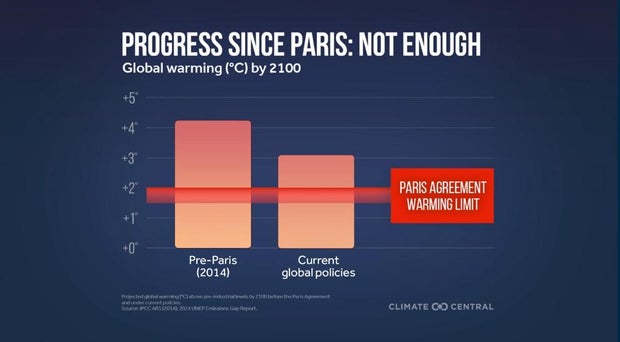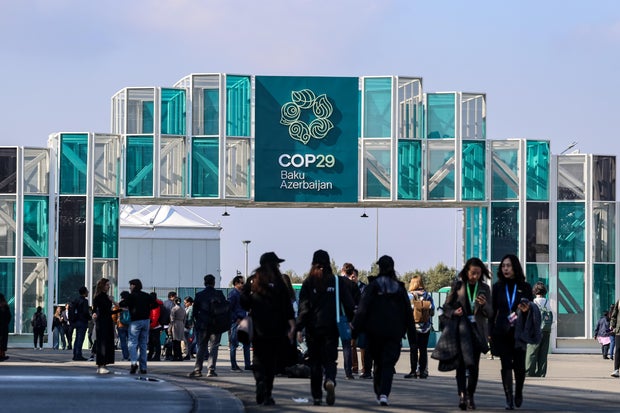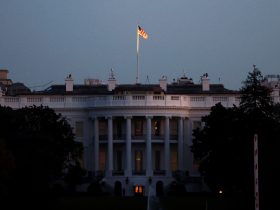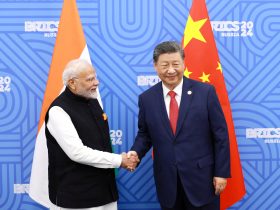As delegates from almost 200 nations collect for a serious worldwide summit on addressing the specter of local weather change, they’re confronting a brand new period of uncertainty for the US’ local weather commitments within the wake of Donald Trump’s presidential election victory.
Trump has mentioned that in a second time period, he would once more exit the Paris Local weather Settlement, an accord signed in 2016 aiming to scale back greenhouse gasoline emissions and restrict international warming to not more than 1.5 levels Celsius above pre-industrial ranges. The U.S. formally withdrew throughout Trump’s first time period, however then rejoined below President Biden.
CBS Information has reached out to the Trump transition workplace for extra details about his plans.
The USA joined the United Nations Framework Conference on Local weather Change, a global treaty, in 1992 and has attended its conferences — often known as COP, for “Convention of Events” — in a few years since, most just lately final yr’s COP28 in Dubai.
Mission 2025, the conservative blueprint drawn up by the Heritage Basis for the following GOP administration — which the president-elect has endeavored to distance himself from — requires the U.S. to withdraw from each the U.N. Framework Conference on Local weather Change and the Paris Settlement.
What’s COP29?
This yr’s United Nations Local weather Change Convention — referred to as COP29, since it is the twenty ninth Convention of Events — kicks off Monday in Baku, the capital of Azerbaijan, and runs by means of Nov. 22.
The annual summit, which is held in a special location yearly, brings collectively world leaders and hundreds of different representatives of countries which can be get together to the U.N. Framework Conference on Local weather Change. Their aim is to take inventory of the progress on lowering greenhouse gasoline emissions — every nation units it personal targets and motion plan — and limiting international warming.
Thus far, the world is falling far quick of assembly these local weather targets.
Total, 2023 had the very best greenhouse gasoline emissions ever recorded, though listed here are at present 42 nations the place emissions are lowering, together with the United States, China, Russia and within the European Union.
With out better reductions over the following few years, the world is on a path to see a temperature improve of greater than 3 levels Celsius, in accordance with an October U.N. report, which warned such an end result “would convey debilitating impacts to individuals, planet and economies.”
Local weather Central
Underneath the Paris Settlement, nations replace their targets for emission cuts (often known as Nationally Decided Contributions, or NDCs) each 5 years. The subsequent replace is due in February.
Who’s going to COP29?
This yr, President Biden is sending a delegation that features John Podesta, the senior presidential adviser for worldwide local weather coverage, Power Secretary Jennifer Granholm, Agriculture Secretary Tom Vilsack and Ali Zaidi, the White Home nationwide local weather adviser. Vice President Kamala Harris represented the U.S. at final yr’s convention.
The gathering in Baku might be smaller than some earlier summits for a number of causes, together with fewer attendance passes and resort areas, and considerations over Azerbaijan’s human rights file and its oil-production-based financial system.
Dominika Zarzycka/NurPhoto through Getty Photographs
Various different world leaders have opted to not attend this yr, together with French President Emmanuel Macron, Russian President Vladimir Putin, Brazilian President Luiz Inácio Lula da Silva and European Fee President Ursula von der Leyen. California Gov. Gavin Newsom is not going both, though California typically has a robust presence on the convention.
Larger attendance is anticipated at subsequent yr’s COP30 in Brazil, whose president proven a better dedication to tackling emissions and local weather finance.
What’s going to a Trump presidency imply for U.S. involvement in international local weather efforts?
Consultants say that withdrawing from main local weather agreements has the potential to isolate the U.S. in international local weather negotiations and will encourage different high-emitting nations like China to deprioritize their emissions reductions. Leaving the Paris Settlement would imply the U.S. doesn’t must report on its emissions annually, and it will have weaker authorized tasks to supply local weather finance to growing nations.
However whereas exiting these international commitments could be a serious setback within the eyes of local weather advocates, it would not cease state and native governments, companies or nonprofits from stepping up.
Within the wake of Trump’s victory, a number of local weather advocacy organizations launched a flurry of statements reiterating their dedication to scrub power investments, carbon emission discount and environmental safety. States and native governments are additionally anticipated to proceed investing in initiatives like cap-and-invest packages, carbon neutrality, and infrastructure enhancements.
Different nations are additionally not prone to throw away their local weather commitments.
“I’m struck by the final time this occurred, even with the shock, not a single different nation adopted the US in withdrawing from the settlement,” mentioned Jonathan Pershing, program director of atmosphere on the William and Flora Hewlett Basis and a former particular envoy for local weather change on the State Division.
Withdrawing from the Paris Settlement would take at the very least a yr to finish, and a future president would have the facility to rejoin in the event that they so select — simply as President Biden did after Trump exited the settlement throughout his first time period.
A withdrawal from the U.N. Framework Conference on Local weather Change, however, may have a good better long-term influence. Exiting the worldwide treaty would take away the U.S. from the worldwide stage of local weather discussions and will hamper the nation’s skill to take part in negotiations sooner or later. The U.S. Senate ratified becoming a member of the UNFCCC in 1992, which authorized specialists say may make withdrawal a extra complicated course of.
ClimateWatch: Local weather Change Information & Options
Extra
Extra









